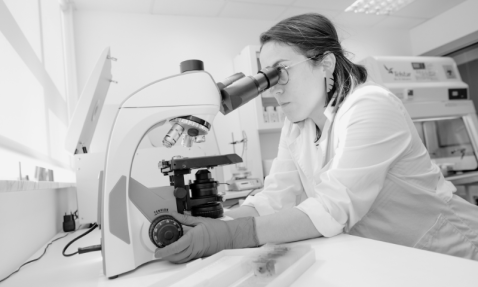Cirad Project
More information

Expected results:
Knowledge of adhesive technologies based on sucrose chemistry, as well as possible synergies with other natural products (starch, lignin, tannins, etc.) and definition of chemical synthesis routes of greatest interest for the technological development of alternative adhesives to formaldehyde-based resins and with optimum final performance for use as a binder in wood-derived composite materials.
Knowledge of specific chemical pathways for the creation of adaptive covalent bonds (CANs) and assessment of the technical feasibility of their incorporation into the development of the project to impart recyclability to the adhesive systems under this project.
Knowledge of the chemical nature of nanomaterials, mainly from renewable sources and based on cellulose, of interest for their incorporation into adhesive systems, as well as the influence of their incorporation on the final properties of adhesives and wood-derived composite materials obtained from the use of nanomodified adhesives as a binding agent.
Development of adhesive systems through established development routes, knowledge of the influence of their chemical composition on their physical, chemical, thermal and mechanical properties, as well as their capacity for biodegradation and establishment of the optimal formulations for their application as a binding resin in wood-derived composite materials.
Knowledge of the curing process of adhesive systems obtained and of the optimum experimental conditions, both in terms of the chemical composition of the adhesives and the experimental variables (temperature and pressure) of the process of obtaining composite materials, in order to achieve optimum curing of the resin.
Development of composite materials by means of the adhesive technologies developed and knowledge of experimental variables, both those related to the chemical composition of the adhesive and those of the process of elaboration of the materials, mainly in the physical and mechanical properties, as well as in their capacity for biodegradation of the composite material obtained.
Development of composite materials from lignocellulosic fibres, alternatives to wood, from the revaluation of treated by-products of agro-industrial origin, grape stalks from the wine industry and artichoke by-products from the agro-food industry for the transformation of artichoke products.
Establishment of the processing conditions of composite materials by using the developed adhesive technologies, free of toxic substances in their formulation, with a high renewable origin and with the capacity to impart biodegradation and/or recycling capacity, with optimal final performance for their application in products of the habitat sector.
Establishment of the technical feasibility for the revaluation of waste of natural origin and definition of the specific methodology for obtaining composite materials with potential application in the manufacture of products for the habitat sector, through their use as raw materials.
Contribution to increasing the sustainability of materials commonly used in the habitat sector and facilitating the transition towards a circular economy by creating industrial symbiosis between traditional sectors such as the agri-food sector and the habitat.
To strengthen the technical capabilities of CETEM’s Materials R&D&I area by acquiring knowledge related to adhesive synthesis technology with a high renewable content and the recycling of natural and/or synthetic waste as potential alternatives to conventionally used composite materials.
Project partners

Fondo Europeo
Bélgica

Región de Murcia
España

Ris 3 Mur
España
Proyectos relacionados

Vinnova

RECIPOL











